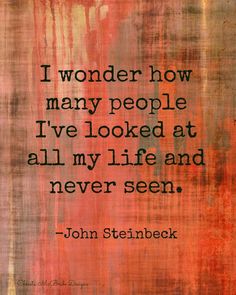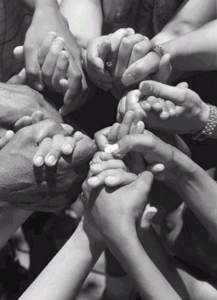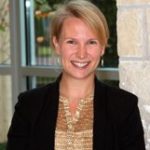A Retelling of the Hunger Story
“We are more alike, my friends, than we are unalike” –Maya Angelou
by Amber Jekot
In a city of residents dedicated to addressing poverty and hunger, in a city with nonprofits aplenty, in a city where zeal for addressing these concerns is even a part of our city’s governance, we find ourselves proud of this strange gem of a place – Waco, Texas. While our pride is justified, we must also admit the broken reality that dividing lines between neighborhoods, races, and socioeconomic classes linger despite our well-intentioned attempts to address them.
Perhaps part of the reason these divisions persist is the language we use and the story we tell about our community.
The language we use forms our reality. A recent study by Feeding Wisconsin found that the way we speak about hunger dictates how people respond – or do not respond – to this challenge. The study suggests that by utilizing shocking statistics, by telling the most devastating story we can conjure about those in poverty, and by neglecting to tell the success stories of our community, anti-hunger advocates actually do more harm than good for the cause of change – by unintentionally making hungry people seem “different.”
A distance between people is created when the pitiable reality of hunger conflicts with the universally held value that no human should have to experience hunger. This value is especially strong in America, the wealthiest country in the world, where, though the reality of hunger “should” no longer exist, 1 in 5 Americans are food insecure. The Feeding Wisconsin study found that when one’s values conflict strongly with reality, blame surfaces. In this case it is blame of the hungry people: “there must be something wrong with them for hunger to occur here.” With this in mind, maybe the story we tell about our community needs to be reoriented. Perhaps linguistic alterations can help break down barriers between “us” and “them.”
 John Steinbeck, author of the classic The Grapes of Wrath, shows us the faces of hunger in a way that breaks down the barriers between seemingly disparate groups of people. The reader is drawn into the epic journey of a struggling, yet inspiringly resilient family who experiences hunger as a result of the 1930’s dust bowl. The reader is invited into a distinctively unfamiliar reality, yet becomes an ally of the protagonist, the Joad family unit, by developing a deep knowing and understanding. The storyteller invites us into an authentic relationship that bridges the distance between “them” and “us.”
John Steinbeck, author of the classic The Grapes of Wrath, shows us the faces of hunger in a way that breaks down the barriers between seemingly disparate groups of people. The reader is drawn into the epic journey of a struggling, yet inspiringly resilient family who experiences hunger as a result of the 1930’s dust bowl. The reader is invited into a distinctively unfamiliar reality, yet becomes an ally of the protagonist, the Joad family unit, by developing a deep knowing and understanding. The storyteller invites us into an authentic relationship that bridges the distance between “them” and “us.”
Steinbeck’s mantra throughout the book cautions the reader to be wary of confusing effects with causes: “These things are results, not causes. Results; not causes; results, not causes” (Steinbeck, p. 152). The hungry in Steinbeck’s novel and the hungry in the Feeding Wisconsin study are subject to the same common mis-assignment of cause. We don’t believe people should be hungry, yet people are hungry. This harsh reality rubs painfully against the grain of our values. So, to reduce the pain we come to believe that hungry people must be different from us. They must be the cause of their own plight. We need to question this assumption about cause with more depth.
For example, individuals who are having a difficult time paying for food are often blamed for making unwise financial decisions. They are criticized, for example, for purchasing simple pleasures when they could be saving up for rent. If we consider this criticism through the lens of the idea that we are all more alike than we are different, we can begin to recognize that spending beyond our means is an American problem, not just a problem for the poor. As a graduate student, I can attest to this. My fellow students and I sip our overpriced caffeine fixes while at the same time complaining about loans we’ll be paying back for the next fifteen years. The mortgage crisis that played a fundamental role in our country’s economic downturn was partially caused by middle class individuals spending beyond their means. Banks even participated in this irresponsible spending behavior by offering subprime loans.
College students, bankers, homeowners, and those who are struggling to buy the healthy food they need are far more alike than we are different. The difference between these groups of people is not just that one group is financially responsible while the other is irresponsible. We all make financially irresponsible decisions. At least part of the difference is that systems in place make it easier for some groups to recover from their irresponsibility while making it likely that others will fall farther behind. Paying back a payday loan, paying back credit card debt, and having the government help out a financial institution, are very different support systems with very different consequences.
The Feeding Wisconsin study found that for folks to recognize and acknowledge the whole range of causes of hunger, we must tell the story in a way that acknowledges that we’re all really more alike than we are different. The desire for financial security and breathing room within one’s budget, the need for someone to help us out every once in awhile, and the goal of striving towards a better life are universal values and needs, not just values and needs of a particular group of people. Narratives like Steinbeck’s Grapes of Wrath help to give faces of strength to those who need a little help and those who, in actuality, are much more like us than they are different. Just as Steinbeck narrates a story that bridges the gap between the “us” and “them,” so can we.
 Stories of strength and resiliency of those who experience hunger are widespread in our city: the single mom who, never having maintained a living wage, is now taking night classes because she wants her children to have more opportunities than she ever had; the man who works 70 hour weeks just to give away his money to those in need because “he knows what the struggle is like;” the woman who skips a day of work to advocate for her child’s education and makes concessions to her own health on behalf of her family. These stories represent individuals who — not too unlike those who are well fed — have hopes and dreams for themselves and their families. They just need some support as they move towards their respective goals.
Stories of strength and resiliency of those who experience hunger are widespread in our city: the single mom who, never having maintained a living wage, is now taking night classes because she wants her children to have more opportunities than she ever had; the man who works 70 hour weeks just to give away his money to those in need because “he knows what the struggle is like;” the woman who skips a day of work to advocate for her child’s education and makes concessions to her own health on behalf of her family. These stories represent individuals who — not too unlike those who are well fed — have hopes and dreams for themselves and their families. They just need some support as they move towards their respective goals.
Our city exudes resiliency, strength, and potential. Let us breathe life into our community narrative and believe the best about our neighbors. Waco, join me in working to engage more with people who upon first glance seem different. Let’s tell a better story.
 Today’s Act Locally Waco blog post is by Amber Jekot. Amber is an 8-year Waco resident who works as a graduate assistant at the Texas Hunger Initiative. She is finishing a masters of social work at Baylor University and a masters of divinity at Truett Seminary. She is passionate about the intersection between food, justice, and community and has been known to take trains without knowing her destination. You may contact her via email at [email protected].
Today’s Act Locally Waco blog post is by Amber Jekot. Amber is an 8-year Waco resident who works as a graduate assistant at the Texas Hunger Initiative. She is finishing a masters of social work at Baylor University and a masters of divinity at Truett Seminary. She is passionate about the intersection between food, justice, and community and has been known to take trains without knowing her destination. You may contact her via email at [email protected].
The Act Locally Waco blog publishes posts with a connection to these aspirations for Waco. If you are interested in writing for the Act Locally Waco Blog, please email [email protected] for more information.
Sources used in this post
Feeding Wisconsin (2014). Reframing hunger in America. Research presented at the Texas Hunger Initiative Together at the Table Hunger Summit.
For access to the presentation: https://baylor.app.box.com/s/xykec2gcq9s5m70i0obi/1/2601980659/22198738747/1
RTI Intl, Center for Health & Environ Modeling (Jul 2014). Current and prospective scope of hunger and food security in America: A review of current research. Research Triangle Park, NC: RTI International.
For the full report visit: http://www.rti.org/publications/abstract.cfm?pubid=22989
Steinbeck, J. (2006, 1939). The Grapes of Wrath. Penguin classics. New York: Penguin Books.
